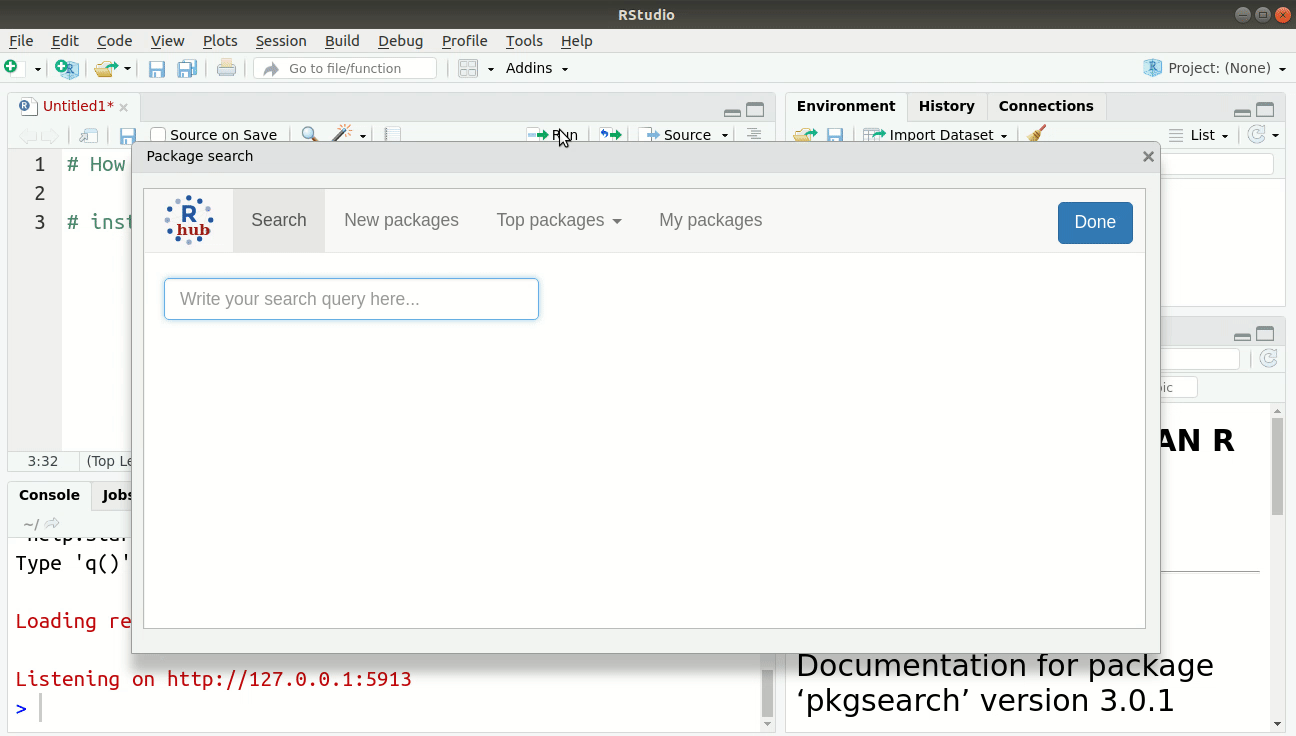-
Notifications
You must be signed in to change notification settings - Fork 9
/
README.Rmd
206 lines (148 loc) · 4.74 KB
/
README.Rmd
1
2
3
4
5
6
7
8
9
10
11
12
13
14
15
16
17
18
19
20
21
22
23
24
25
26
27
28
29
30
31
32
33
34
35
36
37
38
39
40
41
42
43
44
45
46
47
48
49
50
51
52
53
54
55
56
57
58
59
60
61
62
63
64
65
66
67
68
69
70
71
72
73
74
75
76
77
78
79
80
81
82
83
84
85
86
87
88
89
90
91
92
93
94
95
96
97
98
99
100
101
102
103
104
105
106
107
108
109
110
111
112
113
114
115
116
117
118
119
120
121
122
123
124
125
126
127
128
129
130
131
132
133
134
135
136
137
138
139
140
141
142
143
144
145
146
147
148
149
150
151
152
153
154
155
156
157
158
159
160
161
162
163
164
165
166
167
168
169
170
171
172
173
174
175
176
177
178
179
180
181
182
183
184
185
186
187
188
189
190
191
192
193
194
195
196
197
198
199
200
201
202
203
204
205
206
---
output:
md_document:
variant: markdown_github
toc: true
toc_depth: 3
includes:
before_body: header.md
---
<!-- README.md is generated from README.Rmd. Please edit that file -->
```{r, setup, echo = FALSE, message = FALSE}
knitr::opts_chunk$set(
comment = "#>",
tidy = FALSE,
error = FALSE,
fig.width = 8,
fig.height = 8)
options(width = 90)
options(max.print = 200)
```
## Installation
Install the latest pkgsearch release from CRAN:
```r
install.packages("pkgsearch")
```
The development version is on GitHub:
```r
pak::pak("r-hub/pkgsearch")
```
## Usage
### Search relevant packages
Do you need to find packages solving a particular problem, e.g.
"permutation test"?
```{r search}
library("pkgsearch")
library("pillar") # nicer data frame printing
pkg_search("permutation test")
```
pkgsearch uses an [R-hub](https://docs.r-hub.io) web service and a careful
ranking that puts popular packages before less frequently used ones.
### Do it all *clicking*
For the search mentioned above, and other points of entry to CRAN metadata,
you can use pkgsearch RStudio add-in!
[](https://vimeo.com/375618736)
Select the "CRAN package search" addin from the menu, or start it with
`pkg_search_addin()`.
### Get package metadata
Do you want to find the dependencies the first versions of `testthat` had
and when each of these versions was released?
```{r history}
cran_package_history("testthat")
```
### Discover packages
Do you want to know what packages are trending on CRAN these days?
`pkgsearch` can help!
```{r trend}
cran_trending()
cran_top_downloaded()
```
### Keep up with CRAN
Are you curious about the latest releases or archivals?
```{r}
cran_events()
```
## Search features
### More details
By default it returns a short summary of the ten best search hits. Their
details can be printed by using the `format = "long"` option of `pkg_search()`,
or just calling `pkg_search()` again, without any arguments, after a search:
```{r}
library(pkgsearch)
pkg_search("C++")
```
```{r}
pkg_search()
```
### Pagination
The `more()` function can be used to display the next batch of search hits,
batches contain ten packages by default. `ps()` is a shorter alias to
`pkg_search()`:
```{r}
ps("google")
```
```{r}
more()
```
### Stemming
The search server uses the stems of the words in the indexed metadata, and
the search phrase. This means that "colour" and "colours" deliver the
exact same result. So do "coloring", "colored", etc. (Unless one is happen
to be an exact package name or match another non-stemmed field.)
```{r}
ps("colour", size = 3)
ps("colours", size = 3)
```
### Ranking
The most important feature of a search engine is the ranking of the results.
The best results should be listed first. pkgsearch uses weighted scoring,
where a match in the package title gets a higher score than a match in the
package description. It also uses the number of reverse dependencies and
the number of downloads to weight the scores:
```{r}
ps("colour")[, c("score", "package", "revdeps", "downloads_last_month")]
```
### Preferring Phrases
The search engine prefers matching whole phrases over single words.
E.g. the search phrase "permutation test" will rank coin higher than
testthat, even though testthat is a much better result for the single word
"test". (In fact, at the time of writing testthat is not even on the first
page of results.)
```{r}
ps("permutation test")
```
If the whole phrase does not match, pkgsearch falls back to individual
matching words. For example, a match from either words is enough here,
to get on the first page of results:
```{r}
ps("test http")
```
### British vs American English
The search engine uses a dictionary to make sure that package metadata
and queries given in British and American English yield the same results.
E.g. note the spelling of colour/color in the results:
```{r}
ps("colour")
ps("color")
```
### Ascii Folding
Especially when searching for package maintainer names, it is convenient
to use the corresponding ASCII letters for non-ASCII characters in search
phrases. E.g. the following two queries yield the same results. Note that
case is also ignored.
```{r}
ps("gabor", size = 5)
ps("Gábor", size = 5)
```
## Configuration
### Options
* `timeout`: pkgsearch follows the `timeout` options for HTTP requests
(i.e. for `pkg_search()` and `advanced_search()`. `timeout` is the limit
for the total time of the HTTP request, and it is in seconds. See
`?options` for details.
## More info
See the [complete documentation](https://r-hub.github.io/pkgsearch/).
## License
MIT @ [Gábor Csárdi](https://github.com/gaborcsardi),
[RStudio](https://github.com/rstudio),
[R Consortium](https://www.r-consortium.org/).